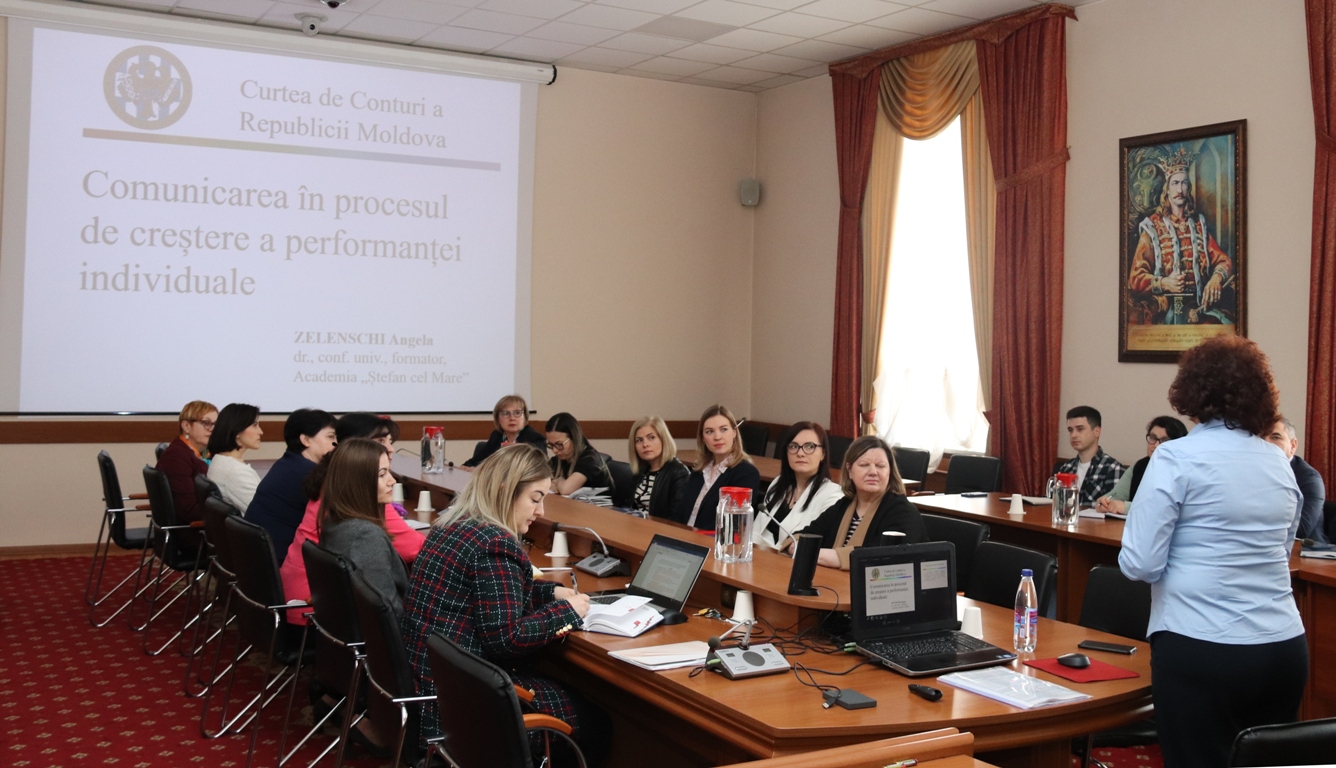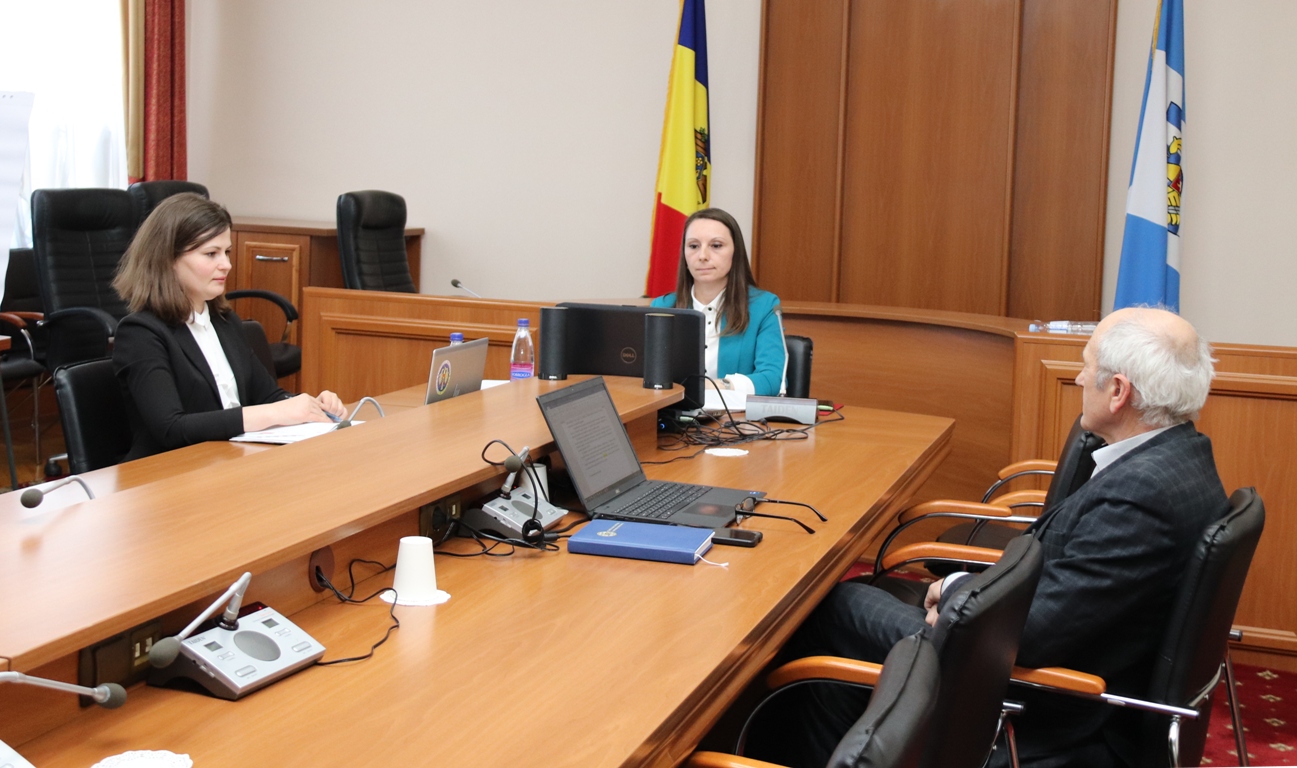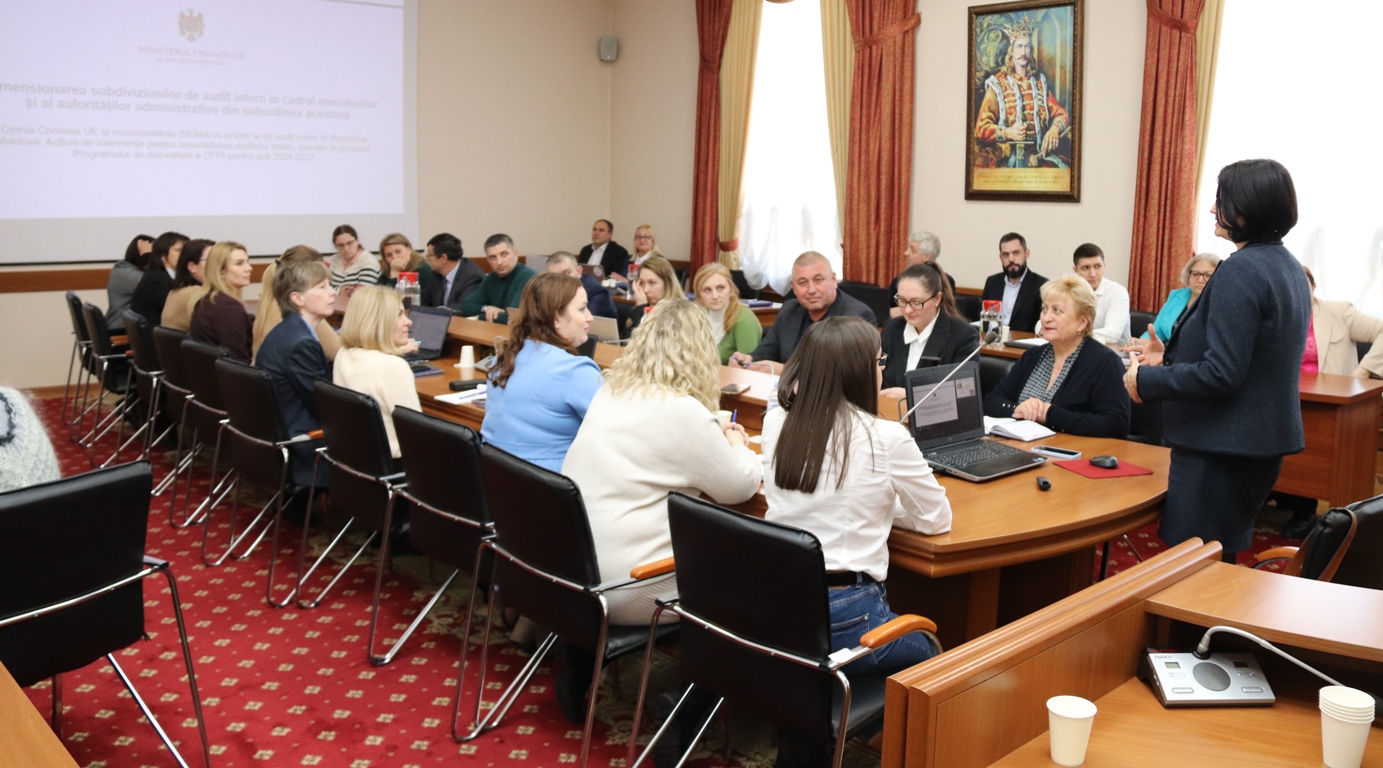
The Court of Accounts of the Republic of Moldova examined, on July 6, the Performance Audit Report "How do the measures taken to implement the interoperability framework contribute to ensuring the efficient exchange of data and interoperability between information systems applied in the public sector?" .
The audit aimed to provide reasonable assurance that the necessary preconditions for the efficient exchange of data and interoperability between state-owned systems and registries owned by public institutions and authorities have been created and met, so as to ensure the efficiency of public service delivery.
The audit included the activities carried out during 2019-2020, as well as in other relevant periods, primarily by: the State Chancellery, the Ministry of Economy and Infrastructure (MEI), the Public Institution "Electronic Government Agency" (EGA), the Public Institution "Public Services Agency" (PSA), the National Center for Personal Data Protection (NCPDP), as well as other holders of state information systems (IS), including public service providers. The audit samples were collected from 72 public participants and 12 private participants, involved in the exchange of data through the interoperability platform, as well as from 32 public entities and institutions, which do not use the interoperability platform, but are service providers according to the integrated nomenclature of public services approved by the Government.
One of the statements made within the e-Government policy documents attests that an efficient and effective governance needs interoperable IS, which work in a continuous and consistent way for the provision of quality services, less expensive and better adapted to the needs of the citizens, the business environment and the public institutions.
The implementation of the interoperability framework will facilitate the efficient provision of public services, both traditionally and electronically, increasing the performance of the Government, due to an efficient data exchange within the public sector, as well as between the public and private sectors. At the same time, the interoperability framework aims at a series of measures necessary to ensure interoperability, grouped on 4 levels, namely: legislative, technical, semantic and organizational.
The acquisition of the MConnect interoperability platform, including its developments, was made during 2014-2016 by the e-Government Agency within the e-Government Transformation Project, financed from the World Bank’s loan. The cost of implementing the Platform amounted to over 20 million lei, and for its maintenance, during the years 2018-2020, expenses amounting to over 4 million lei were made.
The establishment of the MConnect interoperability platform was carried out in stages, thus, in the period 2014-2018 it was used in pilot mode, and starting with 2019, in production, at national level, being mandatory for all authorities and public institutions holding state IS, with the exceptions provided by the regulatory framework.
In addition to the key benefits of MConnect, the audit identified some issues and areas of high risk probability that require stringent actions and measures for their proper management in order to ensure the efficient use of public data and resources. Thus, the most vulnerable aspects are expressed throughout:
the shortcomings of the normative framework related to the organization, implementation and functioning of the MConnect platform, the insufficient activity of the bodies involved, including the lack of an efficient and adequate monitoring, coordination and control mechanism for the application of the Interoperability Framework have limited the effectiveness of the platform;
inconsistencies between the notions used in the legislation related to data exchange and interoperability regarding: participants in the data exchange through the MConnect Platform, the definition and operation of the MAccess electronic service, the deadlines established for the platform connection procedure, the scope of the legal provisions, respectively on the obligation to use the platform;
the sporadic and lack of proper coordination and monitoring of the MConnect interoperability platform during the reference period by public authorities and institutions to ensure the exchange of data limits its efficiency and effectiveness;
the inefficiency of the interoperability platform implemented by the Government, through the EGA, as a result of the parallel use by public authorities and institutions of the traditional way, or of alternative data exchange mechanisms for collecting the necessary data in order to make decisions in the appropriate sector.
With the launch of the MConnect interoperability platform in production, starting in 2019, its connection and use by public participants was not a well-planned and organized process.
In this context, it is noted that, although the legal provisions in the field of data exchange and interoperability determine the need to organize and plan the process of connecting to the interoperability platform, both at institutional level, by developing and approving plans to connect to it by public authorities and institutions holding IS, after coordination with the competent authority (EGA), as well as at national level through the approval by the Government of the plan to connect public participants to the interoperability platform, so far no such documents have been developed and approved.
The audit finds that, although during the reference period there is a positive trend of use of the MConnect interoperability platform by public authorities and institutions, measures are still needed to boost the use of the platform in order to ensure its effectiveness.
At the same time, it is attested that, although 23 public entities have concluded agreements as well as signed technical annexes, during 2015-2020, to ensure the exchange of data through the interoperability platform, at the time of the audit, they are not effectively connected to the platform. The audit also reveals that, although some public entities performed the necessary activities to connect to the interoperability platform, at the time of the audit they did not actually use the platform for data exchange, such as, for example: the National Energy Regulatory Agency (NERA), the Public Property Agency (PPA), the General Inspectorate of Police (GIP), the National Blood Transfusion Center (NBTC), the Competition Council, the Organization for the Development of the SME Sector, the Ministry of Education, Culture and Research (MECR).
According to the explanations provided, the audit finds that, among the factors that conditioned the non-use of the platform is the lack of authorization from NCPDP, the lack, as the case may be, the insufficiency of the regulatory framework of the respective IS, as well as the fact that some IS are used in pilot regimeand are not being finalized and launched into production.
Also, following the analysis of the information submitted by the public service providers according to the Nomenclature approved by the Government, the audit certifies that 32 of them did not connect to the interoperability platform. At the same time, the audit certifies that out of 11 service providers selected based on random sampling, which provide a total of 328 services, only 6 are connected to the MConnect interoperability platform, some only for data consumption, not their provision.
Generalizing the audit findings, the Court of Accounts certifies that, on the whole, with some reservations of improvement, certain necessary conditions have been ensured in order to obtain the expected results related to the implementation of the Interoperability Framework. At the same time, the audit reveals that, although some tangible results were recorded, they did not fully result in the expected impact, also generated by the relatively low level of connection and use by public authorities and institutions of the interoperability platform, including ensuring the availability of data held in IS through it, the parallel use of the traditional way of accessing data, not fully ensuring the conditions for the protection of personal data etc.
At the same time, the Court of Accounts notes that ensuring effective cooperation between stakeholders, intensifying monitoring, support and impetus procedures by decision makers, in order to empower stakeholders, and taking the necessary measures to implement audit recommendations, will contribute to achieving the expected impact of the interoperability framework, respectively of the MConnect interoperability platform.
 WITH DEFICIENCES OF VIEW
WITH DEFICIENCES OF VIEW Youtube
Youtube Facebook
Facebook


 print
print




